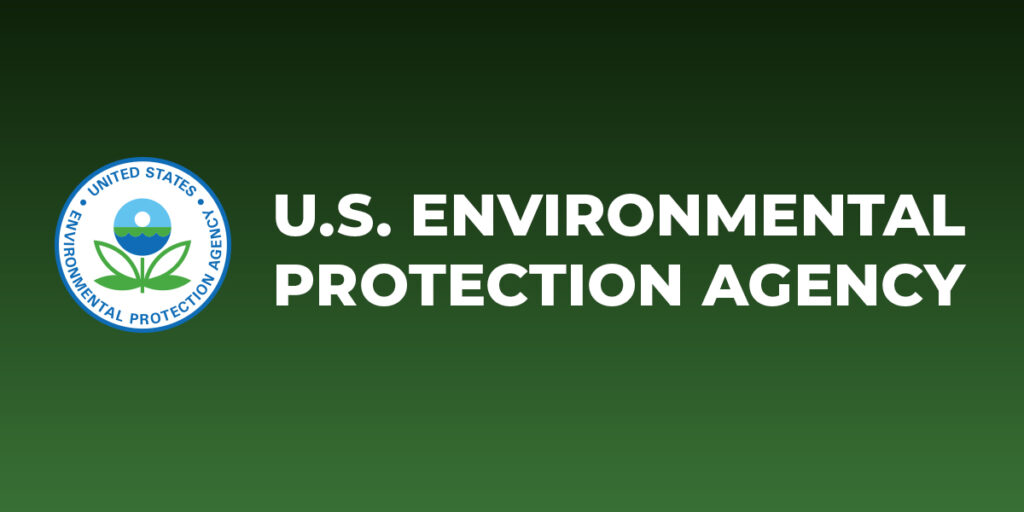 (AGENPARL) - Roma, 1 Agosto 2023
(AGENPARL) - Roma, 1 Agosto 2023(AGENPARL) – mar 01 agosto 2023 Issued: Aug 1, 2023 (11:01am EDT)
If you wish to unsubscribe please do so
here:Â http://url6130.epa.mediaroom.com/ls/click?upn=-2BroytcZInNRyuFbAvAoN5aMEQDHIx2RtQl0jT-2FwLgZHafJKm-2F7NYrsKNAZH88rhd98aG2o5sSGIX8iVgGgXwOczi8WNFU0a7GLvUAvQ8R0QCtkuTI4WABymYAm345NQtu7Fa_mLoYh0p4AWg4foFr5HgrZ1QioQ33bLwdnQ-2BsYGKFX9mApcfdQmv0-2Bvkdf9kq-2BlYjYbiB-2BQNmSZ-2FzhsgK0ruiqgeltpQyG48Lhzfp8puevPQY471mJFi3ReN1gzgZx7xjWj8fY4dxy-2FdV-2FRZTaG9dz2uxpV9yvoMcWY3G41duNGdKjDEeCsuIkisYXXhSujvA-2BMjvN340AX5tx-2BWDnLMx6yIDDO0CgX4NjzlGypYW-2BVcczU2Cgf2TH-2FFuXUF-2BZzD7k5FO11FYgmffE7sBJ8FY7g-3D-3D
EPA Awards Research Grants to 21 Student Teams to Develop Innovative Solutions
to Environmental and Public Health Challenges
WASHINGTON (Aug. 1, 2023) – Today, the U.S. Environmental Protection Agency
(EPA) announced $523,796 in funding to 21 student teams for their research and
innovative solutions to address environmental and public health challenges as
part of the Agency’s People, Prosperity, and the Planet (P3) Program.
“EPA’s P3 program, now in its twentieth year, is an exciting and unique
program that recognizes the power of students to translate imagination and
science into new solutions that protect human health and the environment,â€
said Chris Frey, Assistant Administrator for EPA’s Office of Research and
Development. “Congratulations to this year’s teams. Their innovative
projects tackle critical environmental issues and include an eco-friendly
coating to reduce contamination in marine environments, a device to remove
microplastics from stormwater, an air monitoring and filtration technology to
reduce student exposures to air pollutants, and more.â€
The 21 Phase I recipients announced today will receive grants of up to $25,000
each to help them develop their proof of concept and will be eligible to
compete for a Phase II grant of up to $100,000 to further implement their
designs.
Teams from the following institutions are receiving funding for the 19th
Annual P3 Phase I awards:
Clarkson University, Potsdam, N.Y., for Feasibility of On-farm Microalgal
Cultivation for Dairy Feed Supplement Through Integration of Anaerobic
Digestion of Farm Waste
Fort Lewis College, Durango, Colo., for PCR-Free Environmental Waterborne
Bacteria Detection Using Raman Spectroscopy and Deep Learning
Hamline University, St. Paul, Minn., for Enhanced Detection of Lead Ions in
Drinking Water Using Bismuth Nanoparticles
Georgetown University, Washington, D.C., for Enhanced Detection and Removal of
GenX from Water Supplies
New Jersey Institute of Technology, Newark, N.J., for Scalable 2D
Semiconductor-based Field-effect Transistors for Rapid and Efficient Detection
of Lead Ions
North Dakota State University, Fargo, N.D., for Three-way Removal of Per- And
Polyfluoroalkyl Substances from High-strength Landfill Leachate Utilizing
Simultaneous Foaming and Humic Acid Precipitation During pH Adjustment
Purdue University, West Lafayette, Ind., for Implementation of Cost-effective
Techniques for the Monitoring and Reduction of Indoor Air Pollutant Exposures
in Classroom Environments Through a Service-learning Framework
Rice University, Houston, Texas, for Chemical-free UV Unit That Degrades PFAS
in Landfill Leachate Using Non-toxic Boron Nitride
Rochester Institute of Technology, Rochester, N.Y., for Implementation of an
Industrial Scale Larvae Bioreactor
Southern Illinois University, Carbondale, Ill., for Physicochemical
Degradation of Microplastics
Syracuse University, Syracuse, N.Y., for Developing Low-cost Sensor Unit for
High-frequency Water Quality Monitoring in Non-navigational Rivers
University of Alabama at Birmingham, Birmingham, Ala., for Modeling Outdoor
Comfort With UAV-based Digitization Technique and a Comfort Tracking System
for Underserved Communities
University of Alabama at Birmingham, Birmingham, Ala., for Urban Water
Pollution Extent and Impact on the Village Creek in Birmingham, AL – Analysis
and Mitigation Strategies
University of Alabama, Tuscaloosa, Ala., for Predicting and Equipping Private
Well Owners at Risk of Microbial Contamination After Flooding Events
University of Central Florida, Orlando, Fla., for Rapid and Simple MC-LR Check
to Monitor Blooms for Early Action
University of Maryland Eastern Shore, Princess Anne, Md., for Natural Approach
in Antifouling Protection: Remedy for Safer Water for Fisherman, Boaters, and
Cargo Ships
University of Nevada, Las Vegas, Nev., for Optimized Biochar/Hydrochar for
Disinfection Byproduct Removal in Water
University of North Carolina Asheville, Asheville, N.C., for Mapping Air
Pollution Disparities Using Low-cost Particulate Sensors
University of Tennessee at Chattanooga, Chattanooga, Tenn., for Microplastics
Sampling for Stormwater Management
University of Texas at Dallas, Richardson, Texas, for MINTS: Multi-scale
Intelligent Sensing
University of Wyoming, Laramie, Wyo., for Recreator Crowdsourcing of Particle
Levels During Wildfires
Learn more about the P3 Phase I winners.
Learn more about EPA’s P3 program.
To unsubscribe or change your settings click here:
http://url6130.epa.mediaroom.com/ls/click?upn=-2BroytcZInNRyuFbAvAoN5aMEQDHIx2RtQl0jT-2FwLgZFdW2WYdzQmaasDKJ3YChU3pgKtvgHiDgGIGpFpFRi8fPyTty88daO8pi10-2BjVQEKhGae-2BRjynoARKGRFx-2B08Qr5yh2vd2bU-2Baf-2Bb9GKFYnFA-3D-3DJFim_mLoYh0p4AWg4foFr5HgrZ1QioQ33bLwdnQ-2BsYGKFX9mApcfdQmv0-2Bvkdf9kq-2BlYjYbiB-2BQNmSZ-2FzhsgK0ruiqgeltpQyG48Lhzfp8puevPTzAa1KhHBKHnGmr8ESx9-2Bvks3J9PsngMqnOZjn8oUYQ4NZY52WvNvvQxpvmy5N1RnBMDz9URBIPGBxw4B-2BpZcyjUP7NeRWEkCtlAjiDRk6b72ysRJ5pbznJa2AAkQdD20St6fKgMcVDYd708QQNFDIaaLdfNLYC98gzc2-2BFT9Vbw-3D-3D

